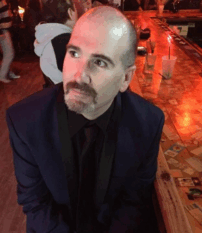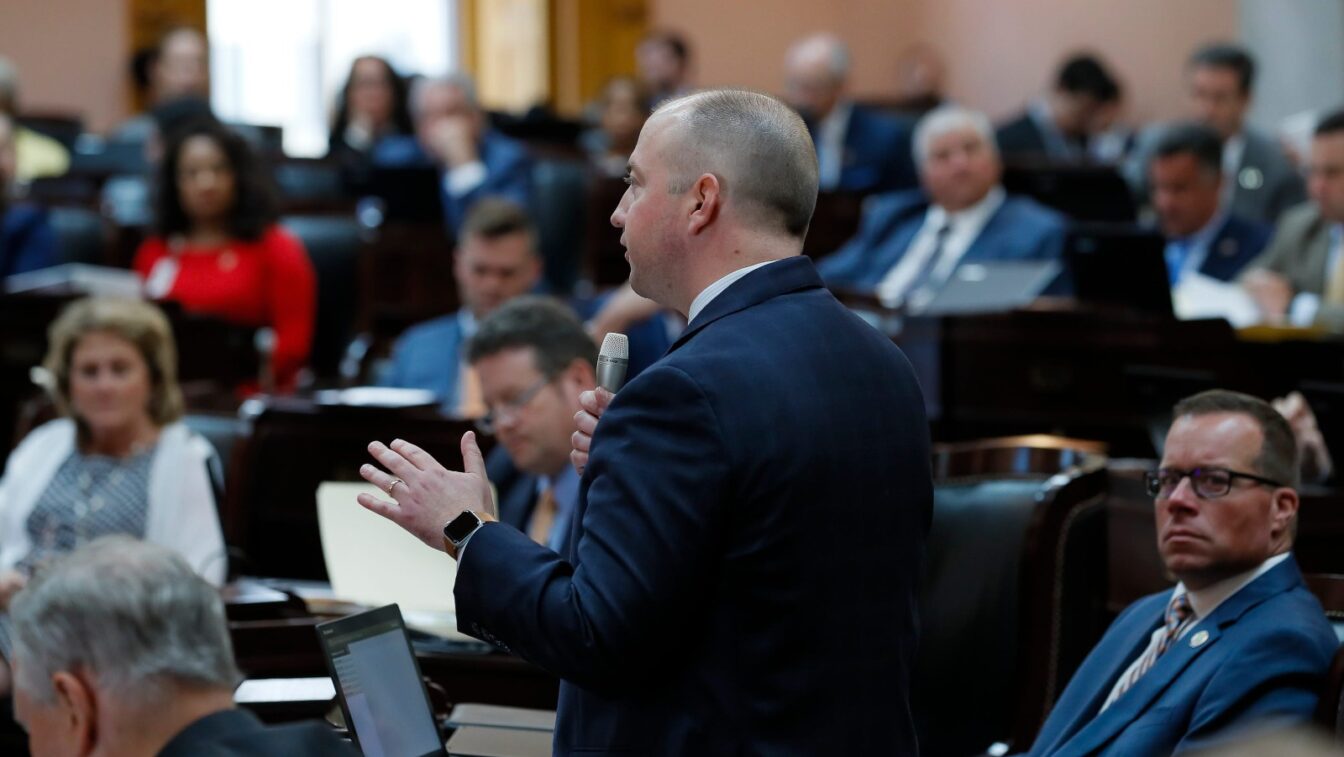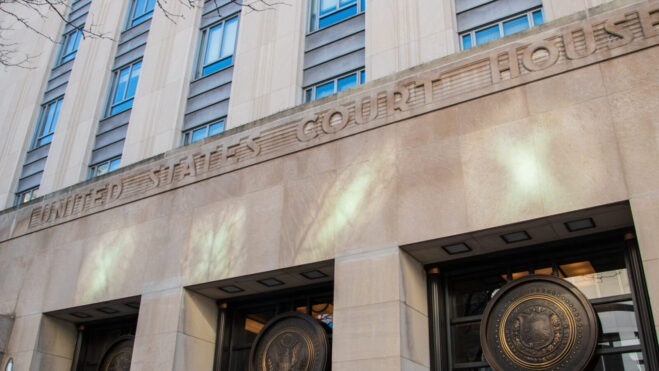Online Casino Proponents Push Back On Numbers In Ohio Legislation
Mostly friendly discussion Thursday centered on lowering proposed tax rates and licensing fees
2 min

It was largely a friendly discussion Thursday in the Ohio Senate’s Select Committee on Gaming, as proponents and interested parties discussed Sen. Nathan Manning’s SB 197, which would legalize online casino gaming in the Buckeye State.
Representatives from Caesars, the Sports Betting Alliance, Boyd Gaming, and iDEA Growth all addressed various parts of the bill, which is on its second reading. Much of the talk centered around the proposed tax rates and initial license fees being potential prohibitive barriers to a competitive marketplace, how illegal gambling would be reduced in Ohio, and reassurances from proponents that iGaming would not cannibalize revenue at brick-and-mortar venues.
The bill is one of two currently in the legislature that would legalize iGaming. Rep Brian Stewart, who is also the chair of the House Finance Committee, introduced HB 298 earlier this week.
Let’s start with the rates and fees
Manning’s bill has two tax rates for potential licensees: either 36% for those who operate an internal platform or 40% for those who connect with an outside operator, such as FanDuel or DraftKings. There are also two initial licensing fees: $50 million for in-state operators or $100 million for out-of-state ones.
As points of comparison, Stewart’s bill calls to tax operator revenue at 28% and has a $10 million license renewal fee compared to Manning’s $5 million beyond the $50 million initial license fee both want.
Scott Ward, speaking on behalf of the Sports Betting Alliance, said the proposed rates in Manning’s bill “punish success by charging the most successful brands higher license fees and tax rates.”
Ward added the rates run contrary to other laws the state has enacted for other businesses, citing one passed this session that lowered tax rates for new electric generation “to encourage and incentivize out-of-state companies to come to Ohio.”
John Pappas, representing iDEA Growth, said the licensing fees would be a “real test case” in terms of just how inclusive the marketplace would be. He felt “it’s hard to believe that those other than the biggest companies would be able to participate” and called those fees “so far outside the norm of what we’ve seen in any other jurisdiction.”
This point was backed up by others who noted during their respective testimonies that Pennsylvania’s $10 million initial license fee is currently the highest among the seven states with iGaming.
Brick-and-mortar concerns remain
The topic of revenue cannibalization was directly addressed in testimony Thursday to varying degrees. Trevor Hayes, the vice president of government relations for Caesars — which conducts gambling at Scioto Downs — called iGaming an additive to brick-and-mortar casinos, citing New Jersey as the “proof of concept.”
“We wouldn’t be advocating for iGaming if we didn’t believe that this is going to help the brick-and-mortar,” Hayes said. “We’ve made an incredible investment here locally, we’ve added to the grandstands, we’ve improved the racetrack.
“We put brick-and-mortar investments in here and we care about our 455 employees. … We’ve seen this in action and been doing it for more than a decade in New Jersey.”
Ryan Soutz, VP of governmental affairs of Boyd Gaming, echoed those sentiments while discussing current renovations taking place at its Valley Forge casino in Pennsylvania. He said iGaming is “complementary to our business” and offers the chance to market to “lapsed customers,” who then are more inclined to activate promotional offers to visit brick-and-mortar venues.
Lessening the black market
Ward and Pappas addressed concerns about illegal operators in different fashions. Ward estimated the black market in Ohio conducts $5 billion in annual wagering, which accounts for 85% of all wagering in the state. In his written testimony, he cited estimates that 60% of all wagering conducted in Pennsylvania and Michigan is in legal and regulated markets, offering proof that “consumers will convert to a legal market.”
Pappas noted the Michigan Gaming Control Board’s challenging offshore platforms via cease-and-desist orders as a key method of minimizing the impact of the black market.
“We have a legal market, and now that we have a legal market that we can direct the demand to, we can go after the bad actors,” Pappas said when describing Michigan’s regulatory aggressiveness. “And they’ve done that by issuing cease-and-desist letters to those companies. And in almost all cases, those companies have complied with those C&Ds, where they’re no longer accepting players there.”






